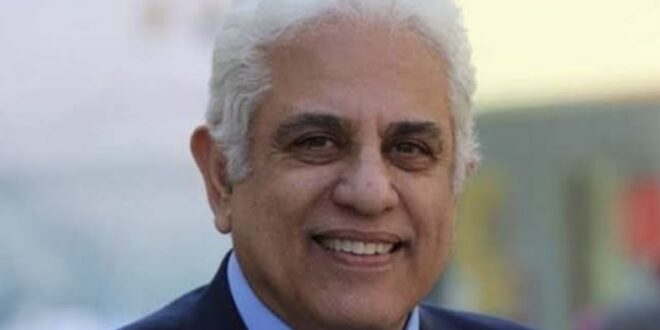Hossam Badrawy writes: Egypt’s Political Future Vision:
Introduced by Dr. Hossam Badrawy, Vision 2030 Advisor for National Dialogue, to the Political Committee.
The Egypt Vision 2030 document did not address the political aspect of managing the country, nor did it set a future strategy or timing for it. I believe, from my experience, that the national dialogue is a political dialogue of the first degree, so it is necessary to have the will to review the articles of the constitution and adhere to its philosophy, because it is the reference document that should govern our dialogue.
The Egyptian army saved the country from a fascist rule under a religious cloak that would have been imposed on the necks and minds of Egyptians.
A sustainable path to development in Egypt:
The current mission of the government is to establish a sustainable path for development in great Egypt, not depending on an individual, but on a sustainable system based on the transfer of power by the free will of voters, and respecting the balance of power within Egyptian society.
Perhaps the greatest concern of the citizen now is focused on the effectiveness of the government, i.e. the ability of the regime to achieve and respond to the demands of the citizen, regardless of the ideological idea adopted by any regime.
Achieving the highest effectiveness of governance requires the most competent to reach the seats of government through a system that enables this, and is also linked to the existence of an independent oversight and accountability system for the executive authority, and setting time periods for governance to ensure renewal in thought and vitality of performance.
Politically, the focus must be on the following elements:
Effective governance.
Competence of the rulers.
Independent oversight and accountability from the executive authority.
An independent and effective justice system (the real revolution must start here).
An education and culture system that enables citizens to build their capabilities to choose the best.
Commitment to implementing the philosophy and articles of the constitution, and providing citizens’ rights.
Vision for Egypt’s political future:
In our vision for a political future that ensures sustainable development, we seek initiatives that achieve our dreams of a modern civil republic that achieves a balance between real forces on the ground.
Initiatives that do not deprive the country of its human potential or its effective national institutions, and give freedom its place and respect by controlling the accomplished justice that prevents chaos or selective manipulation of the law.
The people should be given the freedom to choose and choose their representatives in parliament well, while the armed forces should play their role in protecting Egypt’s independence from any aggression, and preserving the people and the constitution when needed.
The Egyptian armed forces should not be politically placed in front of the responsibility of the development challenge.
The armed forces should not become responsible before the people for the political or economic situation, and we must preserve its role in preserving Egypt’s independence against any aggression, and in protecting the people and the constitution when needed.
Rules of the civil state:
Therefore, a new formula must be found that respects the balance of power but does not waste the rules of the civil state, and this is what all stakeholders in society should strive for, and write about it without sensitivity or fear.
We believe that the presidential system of government, in which the elected president assumes broad powers of government, is the ideal system for Egypt, and it has been the political reality since 1952, although we claim otherwise.
But this system leads to tyranny of power unless the term is limited to two terms at most, not exceeding twelve years, which is what the constitution emphasizes, and this is a constitutional choice that cannot be amended by any ruling authority in favor of its survival.
We must maintain the sustainability of governance in the country and its ability without revolutions, which will require changing the form of the next parliament to restore society’s confidence in its ability to hold the executive authority accountable within a framework that builds and does not destroy.
The best guarantee for the sustainability of the state’s security is the belief that this only happens through a political life in which there is freedom within the framework of the law

Screenshot
 Dr. Hossam Badrawi Official Website
Dr. Hossam Badrawi Official Website

